- How Much Weight Can You Realistically Lose in 3 Months? - January 14, 2024
- How To Lose 1kg a Week (Guaranteed) - August 20, 2023
- How To Count Calories (or Estimate) and Stay on Track When Eating Out at Restaurants - July 25, 2023
Ultimately, staying full in a calorie deficit comes down to three things;
- How much you eat
- What you eat
- When you eat
The best way to combat hunger and stay full in a calorie deficit is to ensure that the deficit is small (250-500 calories per day), eat filling high-protein, high-fiber foods and eat at regular intervals (every 3-4 hours).
A calorie deficit is the ONLY way to lose weight.
If you don’t know what that means by now, being in a calorie deficit means eating fewer calories than you use on a daily basis, consistently, over a long period of time.
For example, let’s say you use an average of 2,500 calories a day. Eating 2,000 calories would put you in a deficit of 500 calories, meaning you’d lose around 1lb (half a Kilo) per week.
The bigger the deficit, the faster you’ll lose weight.
Pretty simple right?
Well yes, a calorie deficit is a VERY simple concept.
But that doesn’t mean it’s easy, and one of the reasons most people don’t find it easy is because they often end up hungry.
Even though they know they need to stick to a certain number of calories, they still overeat because hunger will drive them to.
This means that avoiding hunger is one of THE most important things you need to do in order to successfully maintain a calorie deficit.
Now, before we get started it’s important to understand that you can’t totally avoid hunger. Being hungry is a natural part of losing weight, but there are certain things you can do to avoid extreme hunger, or being hungry too often.
I’ve split these tactics into four categories, and you don’t need to follow ALL of them, but the more of them you use, the easier your weight loss journey should be
THE FOOD YOU SHOULD EAT
This is probably the simplest and most well-known set of tactics for dealing with hunger and staying full in a calorie deficit.
You’ve probably heard a lot about ‘IIFYM’ or ‘flexible dieting’ from influencers on Instagram, and while it is 100% true that you can eat whatever you want and lose weight, it doesn’t necessarily mean you should
Sure you can eat 1,500 calories of doughnuts and ice cream every day and be in a deficit, but you’re not going to have a great time in the long term, believe me.
You’ll be nutrient deprived, incredibly hungry (because your food volume will be low) and you won’t have the energy to train in the gym effectively.
So, while it might be a good idea to have the occasional pizza, doughnut or cookie to help you stick to your deficit, eating those types of calorie-dense foods on a regular basis will do you no favours.
Here are four tactics you can use that won’t make dieting miserable but will make the process much easier because you’ll feel more satiated, more of the time
1. Eat More Protein
Protein has many benefits whether you’re trying to lose fat or build muscle. These benefits include;
- Protein aids with the building and maintenance of muscle mass
- Digestion of protein burns more calories than the digestion of carbs or fat
- Protein aids with satiety
- Protein contains fewer calories per gram than fat
Obviously, the one we care about most is the fact that protein helps with satiety, i.e. the feeling of fullness.
This 2004 study claims that “There is convincing evidence that a higher protein intake increases thermogenesis and satiety compared to diets of lower protein content”.
Furthermore, the study found that eating high protein diets subconsciously ate fewer calories overall.
So, not only can protein help you feel more satisfied within the context of your target calories, it could even mean you eat less than your target calories.
This means that if you were eating 2,000 calories and losing weight at a rate of 1lb (0.5kg) per week, a higher protein diet could mean you only want to eat 1,800 calories for example, which will speed up your weight loss
2. Eat More Fiber
Fiber is a type of carbohydrate that’s typically found in fruit and vegetables, but also some other foods that you might not have realized such as;
- Oats
- Potatoes
- Beans
- Whole wheat pasta and rice
- Popcorn
- Protein Bars
The beauty of fiber is that it can absorb water, which makes it expand, taking up more space in the gut and helping you to feel full (alongside a ton of other health benefits).
The other lesser-known fact about fiber is that it’s REALLY low in calories.
Soluble fiber contains 2 calories per gram, while insoluble fiber contains zero calories whatsoever.
What this means is, the more fiber (especially insoluble fiber) you can get into your diet, the lower your calorie intake is going to be.
But does fiber help people lose weight in the real world? In short, yes.
This study found that a group of people who were told to eat 30g of fiber per day lost an average of 4.6lbs. It also acknowledges that encouraging healthy behaviours is more likely to yield positive results than discouraging unhealthy ones
3. Drink Zero Fizzy Drinks
I know, most diet advice tells us to avoid fizzy drinks. Well, I’m telling you to drink more of them.
Yep, that’s right, go nuts.
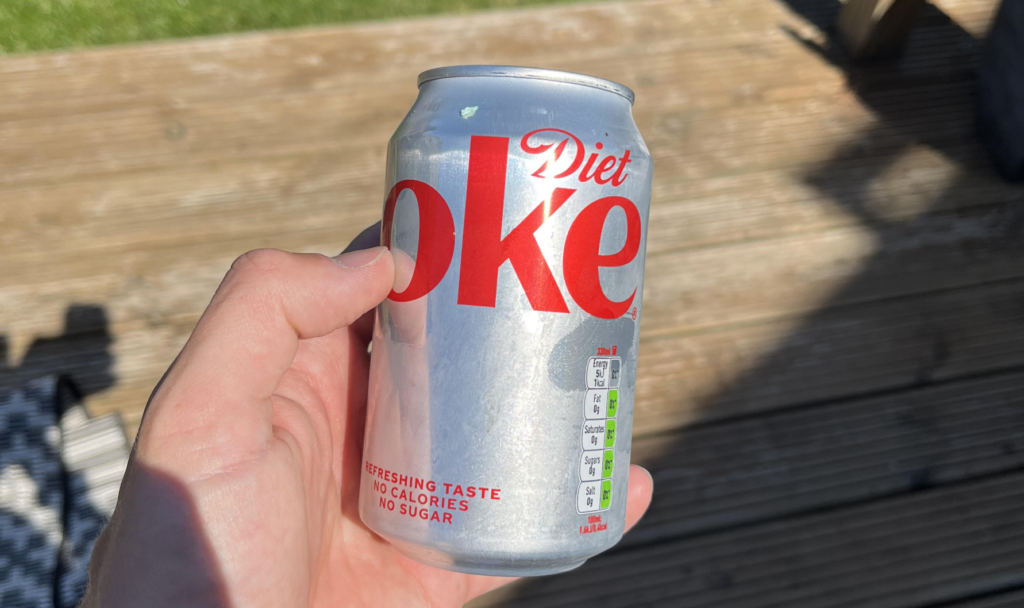
The only caveat here is that the fizzy drinks you have should be zero calories, which means;
- Carbonated water
- Club Sode
- Diet Coke
- Coke Zero
- Diet Lemonade
The advantage of fizzy drinks is twofold.
Firstly, the carbonation helps take up more space in the gut, increasing feelings of fullness.
This 2012 study on 19 healthy young women found that drinking carbonated water results in higher fullness scores than still water for at least 40 minutes after ingestion
Second, they’ll satisfy a sweet tooth without packing any of the calories associated with typically sweet foods like candy, donuts, chocolate, or cake.
4. Eat Potatoes
‘Why potatoes?’ I hear you ask.
No, potatoes won’t magically make you lose weight, BUT, they will do the next best thing and that keeps you as full as possible, for relatively few calories.
A 1995 study compared the ‘satiety’ ratings of 39 different foods and it turned out that boiled potatoes had the highest rating of all the foods in the study, i.e. they keep you the fullest.
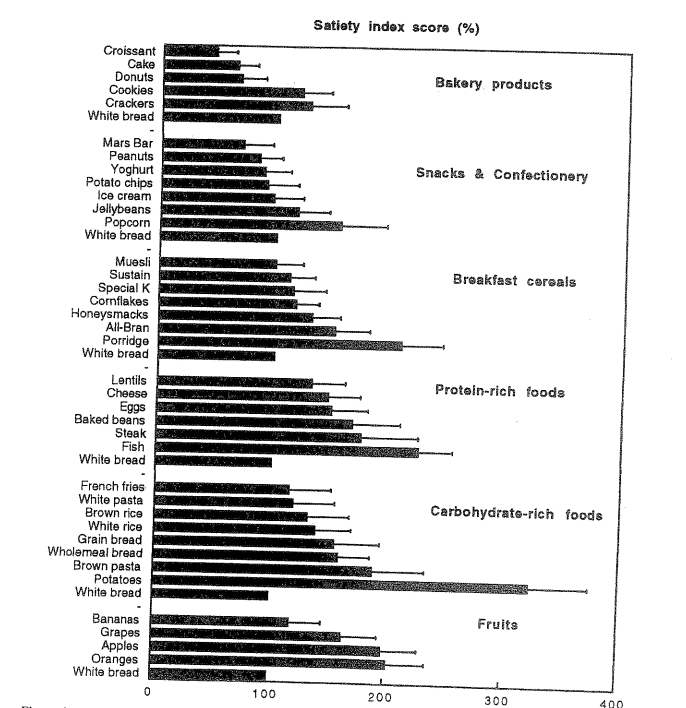
To put in perspective, boiled potatoes were deemed to be 7 TIMES more filling than croissants according to the study.
The takeaway?
Eat more potatoes if you want to lose weight.
But not so fast…
Note that the study looked at BOILD potatoes. That means potatoes cooked in boiling water with no added fat.
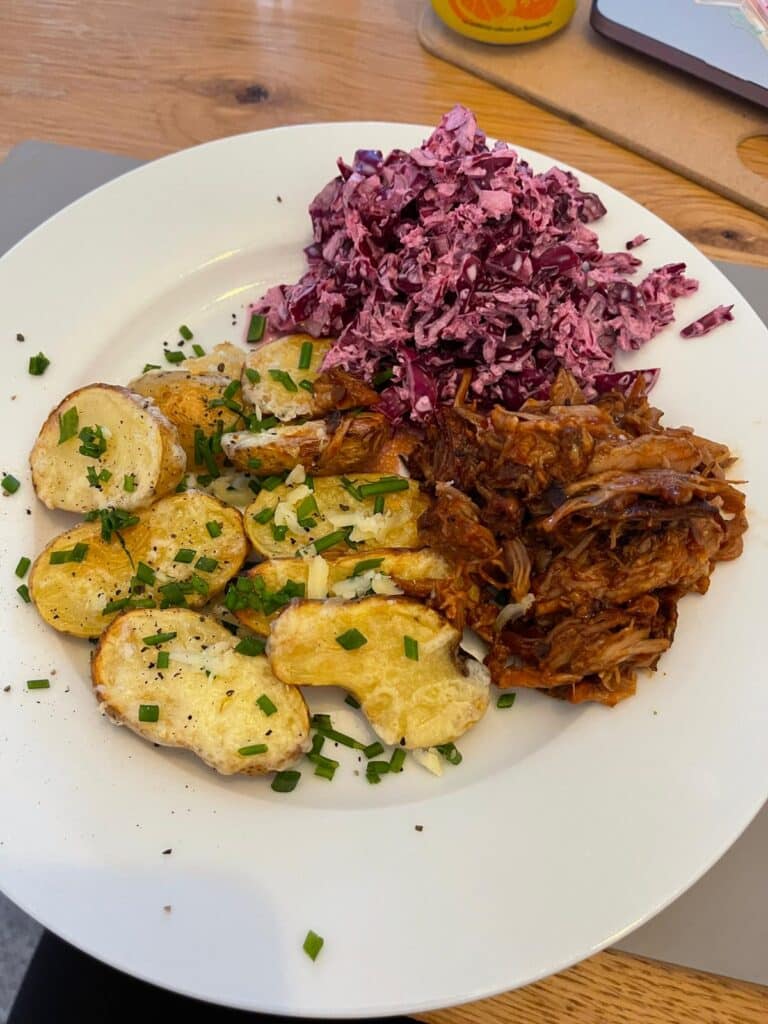
The second you start adding garnish like butter, cheese, bacon, and mayonnaise sour cream, the calories start racking up.
Also, be aware that cooking potatoes in oil will significantly bump up the calories too. If you want maximum fullness for the fewest number of calories, ensure that you either boil or bake potatoes with No added fat or oil.
WHEN TO EAT
Staying full in a calorie deficit isn’t just about what you eat but also when you eat it. Of course, it technically doesn’t matter when you eat, as long as you’re in a calorie deficit.
You can eat once (OMAD) or six times a day.
You can do alternate day fasting, intermittent fasting, or just eat at regular intervals.
It really makes no difference.
BUT
Employing some of the following strategies around meal timing CAN help you stay feeling full, which can be important in helping you stick to a deficit.
1. Don’t Eat When You’re Not Hungry
This one is so simple but so underused.
We’ve been taught as a society to eat 3 square meals a day; typically breakfast, lunch and dinner.
You’ve probably done this since you were a kid, I know I certainly have, almost without fail.
But just because this is what you’ve always done, doesn’t mean you need to keep doing it.
If you aren’t hungry, it makes sense to simply not eat, and if that means skipping a meal, then it’s no big deal, you’re not going to starve to death, trust me.
So what meal should you skip?
Well, you’ve probably heard a lot of people saying that you should (or shouldn’t) skip breakfast. If skipping breakfast works for you they, are great.
I personally prefer to skip dinner though.
Why?
Well, if you skip breakfast, you may end up twice as hungry at lunch as you normally are, which could cause you to eat double the amount of calories or more…
Of course, this leaves you in a worse position because you would have eaten a net higher amount of calories by lunch.
In the example below, you can see that doing this could mean you end up eating 100 extra calories by lunchtime. If you did that every day, that’s an extra 700 per week or 2,800 calories per month!
| SKIPPING BREAKFAST | NOT SKIPPING BREAKFAST | |
| Breakfast | 0 | 250 |
| Lunch | 850 | 500 |
| Total | 850 | 750 |
This is why skipping dinner is better in my book.
If you skip dinner, which most people eat between 6 and 8pm, you don’t have a ton of time to experience hunger as it’s likely that you’ll be in bed and asleep a few hours later.
2. Spread Your Meals Evenly
Having said all of the above, for most people, most of the time, eating at a regular cadence is usually the best option.
Your body will get used to when you normally eat, and you’ll generally find that, if you eat breakfast at 7 am for example, you’ll be hungry at 7 am.
If you keep switching your cadence, you’re more likely to experience extreme hunger and overeat.
For example, if you switch from eating 3 times per day to OMAD, the likelihood is that when you first start, you’ll be so hungry that you eat more calories in one sitting than you would have throughout the entire day.
Although OMAD and alternate day fasting might sound sexy, the boring truth is just eating like a normal person will probably get you the best results.
Not only may this approach be better for weight loss, this study on meal frequency found that;
A regular meal pattern including breakfast consumption, consuming a higher proportion of energy early in the day, reduced meal frequency “…(i.e., 2–3 meals/day), and regular fasting
periods may provide physiological benefits such as reduced inflammation, improved circadian rhythmicity, increased autophagy and stress resistance, and modulation of the gut microbiota”
3. Time Meals Around Training
Ok so eating 2-3 times per day is a good idea but should you eat the same number of calories in each meal?
This really depends on if you train in the gym or play sport on a regular basis.
If you do, it makes sense to eat more calories around your training sessions, whether that’s before or after.
This will give the maximum possible energy for your sessions.
Eating back your exercise calories can be a big problem, especially if you experience extreme hunger after training, and the best way to prevent this is to fuel your sessions properly by eating more before your session.
Here’s an example of how this might look if your total daily calorie target was 1,800 per day
| MEAL | CALORIES |
| Breakfast | 250 |
| Snack | 150 |
| Lunch | 900 |
| TRAINING | N/A |
| Dinner | 500 |
4. Intermittent Fast
There’s nothing magic about intermittent fasting, a lot of people seem to think it’s the golden ticket to weight loss, but intermittent fasting will only work within the context of a calorie deficit.
So could intermittent fasting help keep you full in a calorie deficit?
Well, if you do the typical 16-8 fasting protocol (16 hours fast, 8 hour feeding window), that could mean only eating between 12 noon and 8pm.
This means that you’d skip breakfast – no big deal if you currently eat breakfast when you’re nit hungry, and crucially, not eating after 8.
Now if you know you can’t eat after 8pm, you’re much more likely to have a filling evening meal because you know you can’t snack.
This leads to much better eating habits since you automatically eat enough to feel full.
HOW TO EAT
So far we’ve looked at what you should eat, and when you should eat it, but one thing that’s hugely overlooked is HOW you should eat.
What the hell am I talking about?!
You just pick up a knife and fork and shovel food into your mouth as quickly as possible right?
Not quite.
Being mindful about how you eat can make a genuine difference to how full you feel after eating.
1. Use Smaller Plates
If you eat your good off a huge plate, you’re going to feel short-changed, and as though you’re missing out.
The fix for this is simple.
Use smaller plates!
The same amount of food on a smaller plate will look like a LOT more food. This will mean you won’t feel like you’re missing out, and although it won’t make you physiologically fuller, it will feel like you’re eating more.
2. Eat Slowly and Allow 20 Minutes
This is one your mum probably told you when you were 6.
‘Don’t scoff your food down.
And although it might be fun to eat as quickly as humanly possible, it probably won’t help your fat loss efforts.
What do you normally do? Eat as quickly as possible, decide you’re still hungry and carry on eating, whether that’s seconds, food off of other people’s plates, or dessert.
So do the opposite.
Chew slowly, wait until you’ve swallowed before you eat the next bite, and then when you’ve finished, just WAIT 20 minutes for the hunger signals to kick in.
Trust me, they will.
If you don’t believe me, have a read of this 2013 study which found that eating more slowly led to a greater feeling of fullness in people of a normal weight.
This one tip alone can prevent you from overeating by hundreds of calories a day.
Don’t Compromise Yourself
If you find you’re at the point where you’re so hungry you can’t physically wait for 20 minutes after eating, you may need to eat earlier. Don’t wait until the point where you’re ravenous to eat, start prepping dinner when you feel hunger pangs
EXERCISE
This is an interesting one.
Logic dictates that the more exercise you do, the more weight you’ll lose, makes perfect sense, doesn’t it?
Not so fast.
More exercise isn’t always better.
In fact, exercise isn’t the best tool in the box for weight loss. Nutrition is far superior,
Why?
Well, think about this; how does it take you to burn 300 calories? Probably the best part of an hour, depending on what you’re doing. Plus all of the time you need to spend warming up, getting changed, and getting to the place where you’re going to exercise.
Conversely, think about long it takes you to just NOT EAT 300 calories. Zero time at all. This is why nutrition is a much more powerful fat loss tool than exercise.
That’s not to say you shouldn’t exercise, far from it.
Exercise has so many benefits, including;
- Improved heart and lung (cardiovascular) health
- Improved strength
- Getting better at your chosen sport
- Social aspects
- Fresh air
- More confidence
BUT… Weight loss isn’t really one of these benefits.
Exercise CAN assist you, but it can also hinder you if you do it in the wrong way.
Here’s how you can prevent exercise from undermining your weight loss efforts
1. Don’t Over Exercise
I know, you’ve been led to believe that THE way to lose fat is to do tons of exercise.
And it makes total sense.
Why wouldn’t several, sweaty HIIT workouts that have you gasping for air not help you lose fat? You deserve some reward for all that hard work, right?
Well here’s the thing; your body doesn’t care how hard you work, all it knows is calories in vs calories out.
Regardless of how many calories you burn through hard training sessions, if you eta more than that number, you won’t lose any weight.
In fact, doing too much exercise can stop your weight loss efforts dead in their tracks.
How?
Well if you do so much exercise that you’re super tired and hungry, you could end up eating more calories than you did in the first place, meaning that your exercise session would have been counterproductive.
If you’ve burned off 300 calories through exercise, but eat 400, you’re 100 calories up net
You would have been better off not exercising at all!
This is why it’s crucial to get the amount of exercise you do right; it’s a fine balancing act.
More is NOT better.
2. Fuel Up Pre-Workout
Following on from the first tip, if you don’t fuel your sessions adequately, this could result in more hunger in the long run.
If you eat a banana before you train that’s around 100 calories.
So, if you burn 300 calories, 100 of those are totally wiped out by the banana, BUT…
This could stop the situation described above from happening whereby you eat back more than you burned
AND…
The extra nutrition could give you that bit more energy to train harder so you burn more calories during the workout.
This is how it might look;
| Fueled Work Out | Fasted Workout | |
| Pre-Workout Nutrition | 100 | 0 |
| Calories Burned | 350 | 300 |
| Calories Consumed Post-Workout | 0 | 400 |
| Net Calorie Burn | 250 | -100 |
So you can see the non-fueled workout actually results in a 100 calories surplus!
This is just a hypothetical example, but it should give you an idea of how pre-workout nutrition can affect your net calorie burn.
You Don’t Always Need a Pre-Workout Meal
Be intelligent about your pre-workout nutrition. If you’re going for a 30-60 minute walk there’s no need to ‘fuel it’. If however, you’re playing a competitive sport or doing an intense resistance training session, then it may be best to have a 100-200 calorie snack.
3. Don’t Eat Back Exercise Calories
I get lots of questions from clients about whether they should ‘eat back’ their exercise calories.
This means that if My Fitness Pal has told them they have 400 calories ‘left’, they feel obliged to eat those calories because they feel they’ve deserved or ‘earned’ them.
Doing this however is likely to either put you at maintenance calories or take you out of a deficit.
You should have a set number of calories in your head that you’re going to eat each day, changing that amount on daily basis is going to be a ton of work at best, and at worst the remaining calorie figure will be inaccurate and you’ll see no results.
Don’t rely on MyFitness Pal to tell you how much you should eat, speak to an online weight loss coach and they’ll help you figure out an easier, less stressful way to manage your calories.
OTHER TIPS
So, we’ve gone over how you can manipulate your diet and training to help keep you feeling full, but are there any other lesser-known tips you can use to help you?
Well, yes, there are…
1. Go To Bed Earlier
Do me a favour and have a think for a second… When do you eat the most snacks?
And on top of that, when do you eat the most calorie-dense snacks?
I’m talking crisps, chips, biscuits, chocolate?
I’d put money on the fact that you eat the majority of that type of thing in the evening, when you’re on the sofa watching Netflix or playing on your phone, an hour or two before you go to bed.
If that is the case, what’s easier than just telling yourself not to eat those snacks?
It’s pretty obvious – just go to bed earlier.
If you stay up until midnight, and you eat most of your calorie-dense snacks between 10 and 12, then going to bed at 10 will totally cut off the temptation to so.
More importantly, it cuts off the ability to do so.
Are you really going to go all the way downstairs to grab some cheese and crackers if you’re already in bed and drifting off? Of course you’re not.
Unless you really love cheese…
2. Sleep More
Sleep has all kinds of benefits outside of weight loss, but there’s strong evidence to show that getting more sleep (if you don’t already get enough) could help you with appetite regulation
When you are sleep deprived, your body produces more ghrelin (the hunger hormone). This may be because it’s trying to compensate for the lack of sleep by sending signals to the brain to obtain extra energy from food.
This study found that even one night of poor sleep subconsciously increased food intake in healthy men
Whether or not this is the exact process at play, more sleep is never going to be a bad thing.
Aim to get between 7-9 hours per night.
3. Caffeine
In studies, caffeine has been shown to have an appetite-suppressing effect.
That means, the more caffeine you drink, the less hungry you’re likely to be.
And no, that’s not an invitation to replace all your food with coffee, that’s not going to end well.
What you can do though, is use caffeine strategically throughout the day to hold off hunger when you usually feel it most.
This 2017 study found that “caffeine ingested 0.5-4 h before a meal may suppress acute energy intake” so, if you are going to use this technique, doing it shortly before you eat might be the best approach.
If you’re going to skip breakfast (maybe you’re intermittent fasting), then replacing it with a coffee may mean you don’t even miss your morning cereal and eggs.
BUT
And this is a really important point; stick to black coffee or coffee with a tiny splash of milk.
Hopefully, you can understand why a 300-calorie Starbucks Frappuccino isn’t going to do your weight loss efforts any favours, no matter how much it fills you up.
4. Brush Your Teeth
This is a strange one, but it works.
After your last meal of the day, or at a point when you don’t want to eat anymore, brush your teeth.
After dousing your mouth with strong mint-flavored paste, most other foods are going to taste bizarre (ever tried orange juice right after brushing your teeth).
If you’re eating for pleasure rather than because you’re genuinely hungry, minty toothpaste will almost totally undermine the pleasure element, meaning you’re unlikely to want to eat food that would otherwise be extremely tempting.
Try it.
SUMMARY
Hunger is public enemy number one when you’re trying to lose weight.
Even if you know you need to stick to a specific calorie number, hunger signals which are a base human instinct can override any rational desire you have to hit your goals.
Because of this, you need to do everything you can to mitigate hunger when dieting.
Some of these tips may not work for you, but some may be the difference between being successful and achieving the physique you want, and giving up altogether and skipping back into a yo-yo dieting mentality.
Eat filling foods in a mindful way whilst not over-exercising and you’ll be in good stead to have a trouble-free weight loss journey.
REFERENCES
The effects of high protein diets on thermogenesis, satiety and weight loss: a critical review: https://pubmed.ncbi.nlm.nih.gov/15466943/
Making one change — getting more fiber — can help with weight loss: https://www.health.harvard.edu/blog/making-one-change-getting-fiber-can-help-weight-loss-201502177721
A satiety index of common foods: https://pubmed.ncbi.nlm.nih.gov/7498104/
The Influence of Meal Frequency and Timing on Health in Humans: The Role of Fasting: https://www.ncbi.nlm.nih.gov/pmc/articles/PMC6520689/
The Effects of Carbonated Water on Gastric and Cardiac Activities and Fullness in Young Healthy Women: https://www.jstage.jst.go.jp/article/jnsv/58/5/58_333/_pdf
Acute partial sleep deprivation increases food intake in healthy men : https://pubmed.ncbi.nlm.nih.gov/
Slower eating speed lowers energy intake in normal-weight butnot overweight/obese subjects: https://pubmed.ncbi.nlm.nih.gov/24388483/
Caffeine, coffee, and appetite control: a review: https://pubmed.ncbi.nlm.nih.gov/28446037/
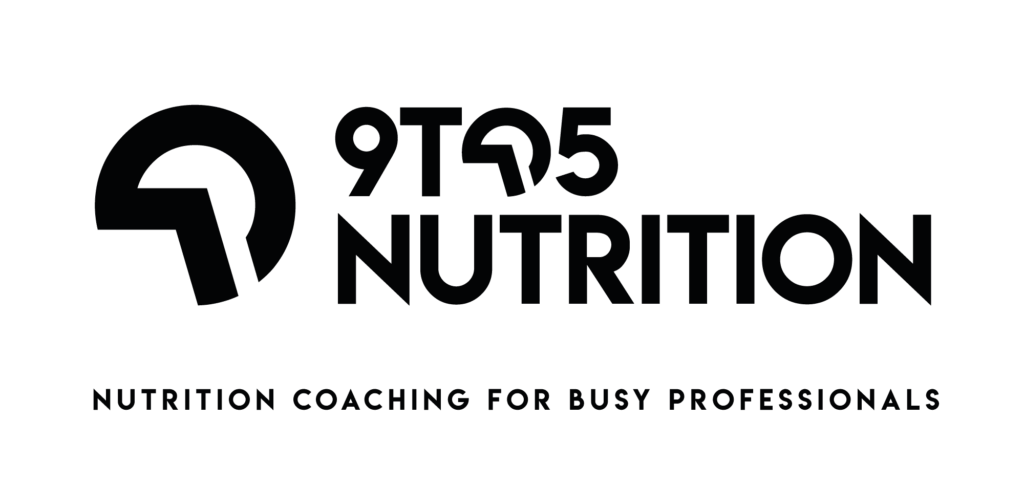
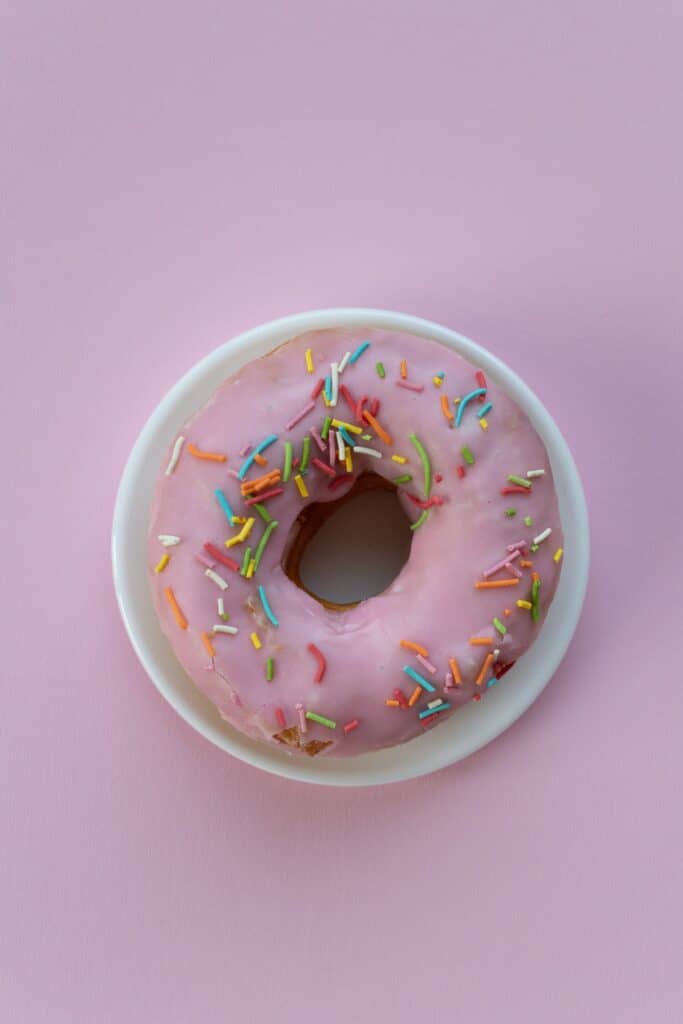
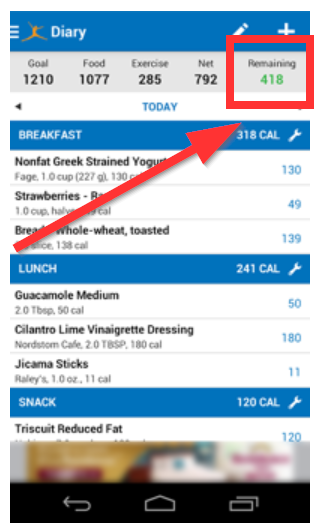

Leave a Reply